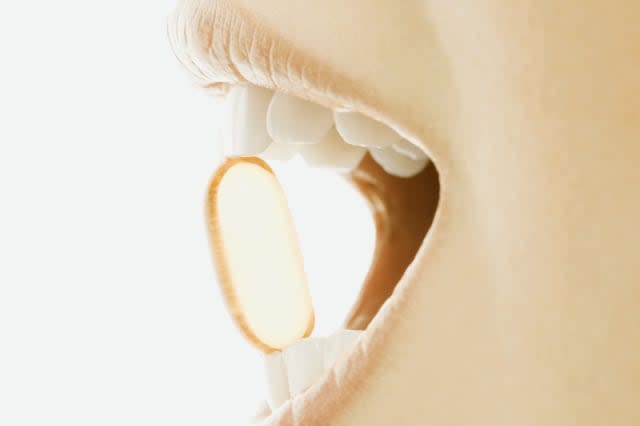Six reasons you need to take vitamin D

You might already know that vitamin D is essential for bone health, as it helps the body absorb calcium, but did you know that it may reduce your risk of getting multiple sclerosis and heart disease, and even help you lose weight?
See also:Experts recommend vitamin D supplements over winter
See also: Five best supplements for the over 50s
1. Fights disease
According to a 2006 study published in the Journal of the American Medical Association, a lack of vitamin D could increase your risk of multiple sclerosis. Not only that, but a lack of vitamin D could increase your risk of developing heart disease, according to research published in Circulation. A study from Copenhagen University Hospital found that people with the lowest levels of vitamin D were 81% more likely to die from heart disease compared to those with the highest vitamin D levels.
2. Wards off a cold
Taking supplements could even help ward off colds and flu, according to 2010 research published in the American Journal of Clinical Nutrition. US researchers discovered that participants with lesser amounts of vitamin D in their bloodstream were more than 30% more likely to have had a recent infection than those whose blood tests indicated higher levels of vitamin D.
3. Helps you lose weight
Need to drop a few pounds? You might want to consider taking a vitamin D supplement. One study found that people who took a daily calcium and vitamin D supplement lost more weight than those who took a placebo. Researchers believe that extra calcium and vitamin D had an appetite suppressing effect. Just be careful not to take more than the recommended daily allowance.
4. Wards against depression
Research shows that people who are low on vitamin D are more likely to suffer from anxiety and depression. Experts say that vitamin D plays an important role in regulating mood and warding off depression. In one study, scientists found that people with depression who received vitamin D supplements noticed an improvement in their symptoms.
5. Keeps your mind sharp
One study found that people with higher levels of vitamin D perform better on memory and cognitive performance tests than those with lower levels of the sunshine vitamin. There is now a growing amount of research into the role of vitamin D in helping to ward against Alzheimers Disease and dementia.
6. Preserves your teeth
If you want a nice smile, make sure you're getting enough vitamin D. According to research published in the Journal of Archeological Science, people who lacked sufficient vitamin D had gaps in dentin - the layer underneath the tooth's enamel.
Are you getting enough?
The body produces vitamin D through exposure to sunshine, but during the winter months, many of us Brits don't get enough. In fact, it's estimated that around 50% of all adults have some degree of vitamin D deficiency.
Symptoms of vitamin D deficiency include sweating when you are at rest, muscle/joint pain and weakness, bone pain and possibly fractures, tiredness/fatigue and even low mood and depression. If you feel you have these symptoms, see your GP who may offer you a blood test and treatment. If you're worried, your GP can do a blood test to check your levels and consider taking a vitamin D supplement.
The Scientific Advisory Committee on Nutrition (SACN) - a group of experts that advises the government - proposed that everyone over the age of one should take 10 micrograms of vitamin D per day.
You can also increase your intake by eating more fatty fish, such as salmon, herring, pilchards, sardines, trout and kippers, eggs and fortified foods such as margarine, breakfast cereals and yoghurt. Check the labels to see how much each one contains.



